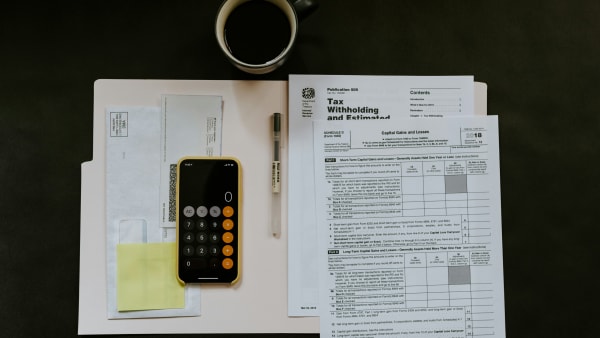What is Superday?
A superday is a term used in an employer's recruitment process to describe a day when a company invites its top candidates to participate in a series of interviews, assessments, and other selection activities.
These events are typically held towards the end of the recruitment process and are designed to evaluate the candidate's fit for the company culture, assess their technical and soft skills, and determine their potential to succeed in a role and at the organization. It is often an efficient way to shortlist a high volume of candidates.
Superdays are commonly used in the financial services, consulting, and technology industries. These are industries where typically, the recruitment process for roles is both time-consuming and highly competitive.
The event involves group exercises, case studies, networking opportunities, and one-on-one interviews with senior executives and hiring managers. These exercises enable employers to identify top talent while ensuring candidates fit their organization well.
In bringing together multiple candidates in one day, recruiters can assess how each individual interacts with others and how they perform under pressure.
Why are Superdays important?
Super days help companies find the best fit for their organization and streamline the selection process, allowing candidates to showcase their skills and demonstrate their potential.
Employers want to ensure candidates have the right attributes and cultural fit to excel in the organization. Often these traits are difficult to assess from a CV. Superdays allow employers to evaluate candidates' soft skills, such as communication, teamwork, problem-solving, and leadership, in a practical work environment by simulating the types of problems and scenarios they will face.
For candidates, superdays are an opportunity to showcase their skills and personality. Superdays also allow candidates to meet current employees and learn more about the company's culture and values.
The results from a superday provide recruiters with a deeper understanding of an individual's skills, abilities, and attributes enabling employers to make informed hiring decisions.
How many people get selected for Superday?
Some employers may choose to hold several Superdays assessing candidates for multiple positions. In contrast, others may have larger superdays where all candidates are evaluated for the same type of role.
Finance companies that use superdays
Superdays are standard practice in the financial services, banking, and investment industries. Some companies that use superdays as part of their recruitment process include JPMorgan Chase, Goldman Sachs, and McKinsey & Company.
These companies believe that superdays are an effective way to assess candidates' fit with the company culture and their technical and interpersonal skills.
What to expect on a superday
Superdays involve multiple assessment exercises along with several interviews.
While the exact format of a superday may vary depending on the organization, here is what you can typically expect:
Superday Interviews
The superday interview process involves several interviews, including behavioral, technical, and case study interviews. Candidates should expect anywhere from 3-5 interviews as part of the interview process, all conducted with different representatives from the organization.
Behavioral interview
The behavioral interview aims to better understand a candidate's soft skills, personality, and prior experience.
To do this, interviewers may ask you questions about your teamwork skills, how you react and deal with pressurized situations, or how you tackle challenging situations with team members or clients. Interviewers will also want to gain more information on your resume's details, achievements, and strengths.
During the interview, you must provide specific examples of situations where you demonstrated the skills and qualities required for the role. It's also essential to provide context, explain your thought process, and highlight the outcomes of your actions.
Technical interview
The Superday Technical Interview usually involves a series of technical interviews conducted by a panel of experts in the field applied for. Questions are asked to evaluate the candidate's technical knowledge, skills, and problem-solving abilities.
Candidates are typically given real-world scenarios and asked to solve technical problems relating to the role they have applied for. This could include designing solutions to business problems or topics such as cash flow or equities.
Case study interview
You may be given a case study to analyze and present your findings to the interviewers. This is designed to test your analytical and problem-solving skills and ability to think logically and communicate your rationale effectively.
Some case study interviews are 1:1, others may require you to work in a team.
Superday Interview Questions
Typical questions asked at a Superday interview include behavioral, technical, and situational questions.
Behavioral questions focus on the candidate's past experiences and how they handled specific situations. These questions often start with phrases such as "Tell me about a time when..." or "Can you give an example of..."
Technical questions test the candidate's knowledge and understanding of the industry and specific job requirements. The complexity of the question can vary depending on the role and specialism.
Situational questions assess candidates' ability to think independently and make decisions under pressure.
Examples of questions that you may get asked at a Superday interview include:
- Why did you decide to apply for a role in investment banking?
- Tell me about your greatest weakness
- Give me an example of when you've gone above and beyond in something
- How is a company valued?
- Talk me through a discounted flow rate model
- Give me three reasons why a company may merge with another company
- What is the difference between cash, stock, and debt?
- Tell me what a leveraged buyout is.
- Tell me about a recent acquisition that you've followed.
Group exercise
You may also be asked to participate in group exercises, where you will work with other candidates to solve a problem or complete a task. This is designed to test your ability to work in a team and to assess your leadership and communication skills.
Networking opportunities
During breaks or lunch, you may have the opportunity to meet and network with current employees. This is a chance for you to ask questions about the company and its culture and to learn more about what it's like to work there.
Assessments
After attending a superday, some firms may invite you back for a final round of interviews or ask you to complete additional assessments.
Tips to prepare for a Superday
Superdays are intense and often long events designed to determine whether a candidate has the skills needed to excel in a role. While attending a superday may be daunting for many, there are several things that you can do to prepare.
#1 Research the company
Understanding the company's culture, values, and mission is essential. Read their website, social media, and news articles to gain insight into their industry and competitors.
#2 Practice your communication skills
Superday interviews are often interactive and require good communication skills. Practice your presentation, public speaking, and active listening skills to show confidence and professionalism.
#3 Refresh your technical knowledge
Some Superday assessments may test your technical knowledge in your field. Review your resume, industry standards, and job requirements to ensure you can answer technical questions effectively.
#4 Get enough rest
A Superday can be an all-day event, so ensure you're well-rested to stay alert and engaged throughout the day.
#5 Be prepared for different types of assessments
Superdays can include a range of assessments, including interviews, group exercises, and case studies. Practice these exercises with friends or colleagues to feel confident and comfortable in your performance.
What percent of Superday candidates get offers?
The percentage of candidates that get offers from superdays varies by organization. In many cases, organizations do not release success rates as this depends on the number of candidates invited and events held. In a medium size company typically 1-2 people get offers depending on how many positions are available.
What questions should you ask on a superday?
To make the most of your superday, it's essential to prepare some thoughtful questions to ask the interviewers.
The questions you ask during a superday can help you gain valuable insights into the company, show interest in the role, and demonstrate your knowledge and research skills.
Here are a few questions you should consider:
- What is the company culture like, and how do you maintain it?
- Can you describe the team I'll be working with, and what would my typical day look like?
- How do you measure success, and what are the key performance indicators (KPIs) for this role?
- How does the company support professional development, and what opportunities are available?
- What challenges do you see for the company in the next few years?
How Long Until You Hear Back After a Superday Interview?
Some organizations contact candidates within a couple of hours of attending a superday, others within 1-2 days of attending a superday. In some instances, recruiters may, at the end of your superday inform you of when you will receive an outcome decision.





